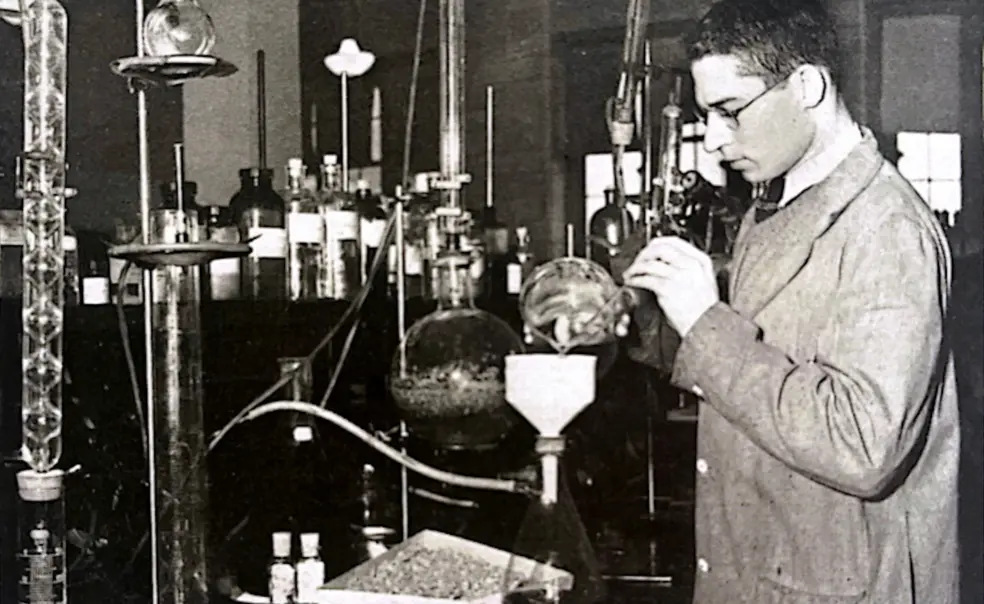The Best Way Forward With WWII
Enlist or Stay in College? An Undergraduate Considers the Alternatives
Last week we presented the story of a young draftee’s viewpoint on his relation to the war. Here is a statement by an undergraduate on his problem of adjustment to present conditions.
All of us in college have plans and hopes and dreams. A few weeks ago those plans and hopes and dreams went crashing, for on December 8 our country went to war, and when it did, it seemed to us that the foundations of our lives were wrecked and swept away. It left us confused, bewildered, uncertain. We didn’t know what to do; we didn’t know what to say; we didn’t know where to turn. This uncertainty has by now resolved itself into a clear-cut issue: whether to stay and study, or to go and fight. It is a problem which must be solved by each one of us by himself. It is largely a personal thing.
We have heard the arguments on both sides, and we know that the sanest thing to do is to remain in college, to continue on our present job. College and university presidents, our faculty advisers, and all the officials of the army, navy, and industry say the same thing. We know those arguments. We have repeated them over and over to ourselves. We know that the army is not yet prepared to take us; we know that they cannot handle a great influx of young volunteers, all hoping to be officers. We know that a college degree and what it stands for is the best possible preparation for the job we shall have to do. We know that there is a peace to be won as well as a war. We know that it will take men with such training as we have and with such knowledge as we have to make the peace as much of a victory as the war will be.
In the last war the best blood and brains of England rushed to the colors and died gloriously in Flanders with the result that today in her hour of gravest need England has a scarcity of leaders. The world may, and undoubtedly will, survive this war, but if the same mistakes are made again the results will be too disastrous to contemplate. The responsibility of seeing that the same mistakes are not made lies with us. Only by completing our training will we be fit to accept such responsibility.
Yet, balanced against all this is the insistent desire for action. We admit that the arguments for completing our college work are valid, but there is something stronger than arguments. Our country has been attacked, and we want to fight for her defense. We want to be a part of the mighty effort. We have friends who are fighting; we have friends enlisting today, more friends who will enlist tomorrow. They have decided that the present danger is greater than the future one, that if this country is not defended now, there will be no use worrying about a peace.
With this urge to defend our nation from attack goes our passionate belief in the righteousness of our cause. Ever since I began to observe the fascist form of government and the fascist state of mind as a student of politics at Princeton, I have lived with a steadily growing conviction that what the fascist is and what he stands for is evil. At the same time my belief that Democracy is a workable, practical form of government which can and will bring about a better world has been strengthened. Along with this I have had a steadily growing conviction that fascism would have to be wiped from the earth by force of arms and that the United States would have to do the job. Now, the United States is taking up arms against the fascist, and I want to join the battle. I want to help fight against a movement which I know is evil and wrong. I want to fight for the cause that I believe to be right, and moral, and just.
But is this the best way? Can I help my cause best by enlisting in her army or navy now? I don’t think so. It seems to me that there is a way out of the dilemma. We college men can do both the things we want to do. We can complete our academic career rapidly. The accelerated program put into effect in such colleges as Princeton enables us to clip previous months from our college program without loss to our training. This for me means graduation around the first of March. At the same time we can find out where our abilities can best be used, so that when the time comes for us to enter the conflict we will know where to go, what to do, and how to do it.
After we have done this we may continue on our college or university courses with the sure knowledge that what we are doing is sane and reasonable, knowing that we are exhibiting moral courage, and knowing that we are doing what is right and what will contribute most to the ultimate success of our country and the cause for which it is fighting both in peace and in war.
This article was originally published in the February 6, 1942 issue of PAW.












No responses yet